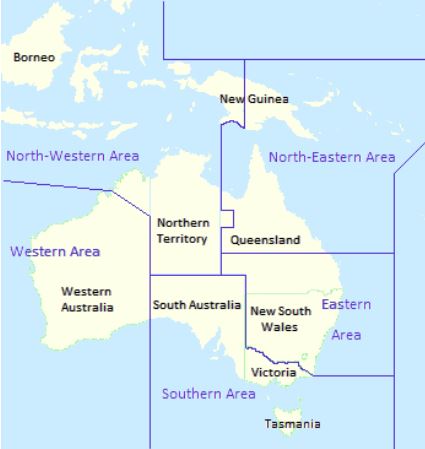Difference between revisions of "HQ Western Area RAAF"
From Our Contribution
(→Unit Personnel) |
(→Unit Personnel) |
||
| (7 intermediate revisions by the same user not shown) | |||
| Line 25: | Line 25: | ||
===Unit Personnel=== | ===Unit Personnel=== | ||
| + | * [[Edith Lillian Madgwick]] 25 Nov 1943 - 11 Apr 1944 | ||
| + | * [[Clarence Albert Curtis]] 20 Dec 1943 - 15 Mar 1944 | ||
| + | * [[Harold Gordon Unwin]] 22 Jan 1944 - ?? 1945 | ||
| + | * [[Lloyd Ryder Hughes]] 7 Apr - 6 May 1944 | ||
| + | * [[Dorothy Mavis Bettenay]] 8 Oct 1944 - 3 Feb 1946 | ||
* [[Beryl Marian Francis]] 10 Nov 1944 - 1 Jan 1946 | * [[Beryl Marian Francis]] 10 Nov 1944 - 1 Jan 1946 | ||
| + | * [[Stanley Reginald Nail]] 11 Jan 1945 - 25 Feb 1946 | ||
| + | * [[Bernice Lydia Hand]] 29 Jan - 7 May 1945 | ||
| + | * [[Patricia Duke]] 14 - 24 May 1945 - Air Defence HQ | ||
| + | * [[Helen Catherine Henderson]] 18 Oct 1945 - 26 Jun 1946 | ||
* [[Mavis Irene Fuller]] 27 Oct - 22 Nov 1945 | * [[Mavis Irene Fuller]] 27 Oct - 22 Nov 1945 | ||
| − | |||
| − | |||
| − | |||
====Notes==== | ====Notes==== | ||
Latest revision as of 02:10, 3 June 2024
 RAAF area commands in November 1942 |
Brief History
Prior to World War II, the Royal Australian Air Force was small enough for all its elements to be directly controlled by RAAF Headquarters in Melbourne. After war broke out in September 1939, the Air Force began to decentralise its command structure, commensurate with expected increases in manpower and units. Western Area Command was formed in January 1941, and controlled RAAF units located in Western Australia. Headquartered in Perth, Western Area Command was responsible for air defence, aerial reconnaissance and protection of the sea lanes within its boundaries. Its aircraft conducted anti-submarine operations throughout the war, and attacked targets in the Dutch East Indies during the Borneo campaign in 1945.
Units under its command included: No. 14 (General Reconnaissance) Squadron, No. 25 (General Purpose) Squadron and No. 5 Initial Training School at RAAF Station Pearce; No. 9 Elementary Flying Training School at Cunderdin; and No. 4 Service Flying Training School at Geraldton. No. 35 (Transport) Squadron, operating de Havilland Fox Moth and DH.84 Dragon aircraft, was raised under Western Area's control at Pearce on 4 March 1942. No. 77 Squadron, equipped with P-40 Kittyhawks, was formed at Pearce on 16 Mar 1942, and was then the only fighter squadron available to defend Perth and Fremantle. No. 6 Fighter Sector Headquarters, Perth, became operational on 2 May 1942.
By April 1943, Western Area controlled four combat units: No. 14 Squadron, flying Bristol Beaufort reconnaissance-bombers out of Pearce; No. 25 Squadron, tasked with dive-bombing missions in Wirraways based at Pearce; No. 76 Squadron, flying P-40 Kittyhawks out of Potshot (Exmouth Gulf); and No. 85 Squadron, operating CAC Boomerang fighters from Pearce. By 31 May 1944, Western Area headquarters staff numbered 686, including 118 officers. The area command continued to operate after the war, but its assets and staffing were much reduced. Its responsibilities were subsumed in February 1954 by the RAAF's new functional command structure.
Unit Personnel
- Edith Lillian Madgwick 25 Nov 1943 - 11 Apr 1944
- Clarence Albert Curtis 20 Dec 1943 - 15 Mar 1944
- Harold Gordon Unwin 22 Jan 1944 - ?? 1945
- Lloyd Ryder Hughes 7 Apr - 6 May 1944
- Dorothy Mavis Bettenay 8 Oct 1944 - 3 Feb 1946
- Beryl Marian Francis 10 Nov 1944 - 1 Jan 1946
- Stanley Reginald Nail 11 Jan 1945 - 25 Feb 1946
- Bernice Lydia Hand 29 Jan - 7 May 1945
- Patricia Duke 14 - 24 May 1945 - Air Defence HQ
- Helen Catherine Henderson 18 Oct 1945 - 26 Jun 1946
- Mavis Irene Fuller 27 Oct - 22 Nov 1945
Notes